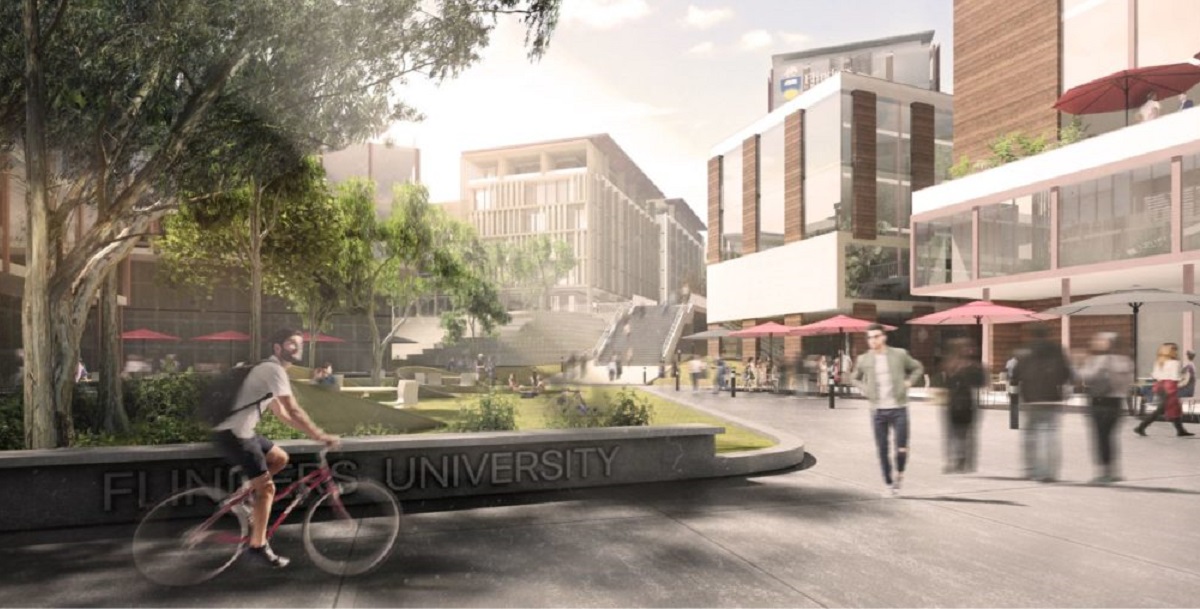
The transformative opportunity to enhance the main Flinders campus as a more community connected and engaging place has a sound educational, social and commercial basis, according to Vice-Chancellor Professor Colin Stirling.
Plans to harness the untapped value of Flinders University’s land footprint have featured in a Times Higher Education analysis of international university developments.
The article by John Ross titled Living off the land: the universities reaping the rewards of their valuable locations examines the infrastructure investments by universities in Australia and internationally, be they funded by international student fees or leveraging existing assets.
Ross reports that Flinders plans to establish a new urban centre in its Bedford Park campus in the city’s south, featuring a town square, health research building, “boutique” shopping centre and hotel, as well as a new train station, due to open in 2020.
The article continues:
“We have enormous amounts of land,” says Vice-chancellor Colin Stirling. “And it’s enormously under-utilised. We’re going to make better use of what has been a relatively lazy asset.”
Other plans in what the university says will be a A$1.5 billion development include on-campus housing for an additional 3,000 students, aged care and childcare facilities and transitional accommodation for patients of Flinders Medical Centre.
“Flinders was the first university in the country to be embedded within its own public hospital,” Professor Stirling notes.
“While our principal objective is to meet the needs of staff and students, this isn’t exclusive to them. Our development serves not just the university but also the six or seven thousand people who work at Flinders Medical Centre and goodness knows how many people who go there every day as outpatients or visitors.
“And it helps encourage our local community to come in and visit more often. That brings people to us, which is a very positive thing for a university to do.”
But Professor Stirling stresses that Flinders has no plans to hawk any of its land. “This isn’t a question of selling the family jewels. Some of the development we’re anticipating will be privately funded, but we’ll do all that on a leasehold basis. We’re developing an asset that will build value in the longer term.”
And he dismisses any concerns about the inherent riskiness of property development, saying that risk management is a matter of good governance.
“We have very clear processes and procedures that will make sure that every step of the way, we know the risks are accounted for and mitigated,” he insists. “It’s like eating an elephant: you do it one bite at a time. We’ll make sure that for every bite we take, we’ve got all the risks controlled.”
And he scoffs at the “old-fashioned” view that universities should not stoop to commercial activities.
“One hears all the time that nobody wants universities to be run like businesses,” he says. “The day we fail to meet our payroll will be the day those people wish we’d been run like a business.”
Times Higher Education subscribers can read the entire article online. It also looks at developments at seven other Australian universities, as well as institutions in the UK, Hong Kong, and Japan.

